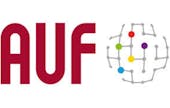With an academic background in urban and economic geography and spatial planning, my research interests so far have been clustered in, or combine, three different scientific angles: cities and regions, economic networks and flows, and metropolitan governance, policy and planning. In this context, I studied subjects as variegated as suburban lifecycles, enclave economic spaces, the spatialisation of logistics in hubs or gateways, and policies pursuing sustainable spatial development. One thread that has been on the agenda for some time now is the relationship between spaces (cities) and flows (people, commodities, money, ideas) – as approached in material, conceptual and also in more metaphorical terms.
More recently, this research trajectory became expanded and further developed into three different directions:
Firstly, I study the myth of urban ontology and epistemology, such as in the case of the ‘metropolitan’ upgrading of city regions, with the current hype of so-called megaregions, as well as with the use of density as a persistent planning paradigm. Secondly, the communicative construction of space has raised my interest, with respect to political projects such as ‘urban renaissance’, boosterism and ‘policy boosterism’ in regional development, or concerning how globalisation is being perceived at the urban level. Thirdly, policy and planning are being explored, particularly given the need to overcome the old, technocratic planning ideal and to seek new ground with urban experiments, communities of practice and the like.
Issues that I started to explore recently include i) an understanding of cities asrelational, subject of a comparative study of the internationalization and political economy of cities such as Luxembourg, Geneva (Switzerland) and Singapore (the GLOBAL-project); ii) a study of the science-policy interface in geography and planning, which sheds some critical light on the promises and limits of co-production among various actors; and iii) the application of an evolutionary understanding of urban areas (such as suburbs), in order to better understand trajectories of change and related ideas for development.
A series of small commentaries that I was invited to publish in the 2015-volume of disP – The Planning Reviewincluded issues such as ‘The NewishCity’, ‘The Science-Policy Interface’, ‘Transdisciplinarity’ and ‘Language’. These commentaries can be read as somehow summarizing my style of thought. See http://www.tandfonline.com/loi/rdsp20.
In terms of methods and methodology, both standardised and particularly non-standardised research methods are applied in my work, where expert interviews, focus groups and discourse analyses (in the Foucaultian tradition) have played an important role. I am also concerned with communicative practices in research (e.g. discourses) and academia (e.g. speaking to an audience, writing), and with language as a catalyst for international communities to emerge, and as a primer of competition. Both have a major impact on research and practice.
Experience
-
–presentProfessor of Human Geography, University of Luxembourg



